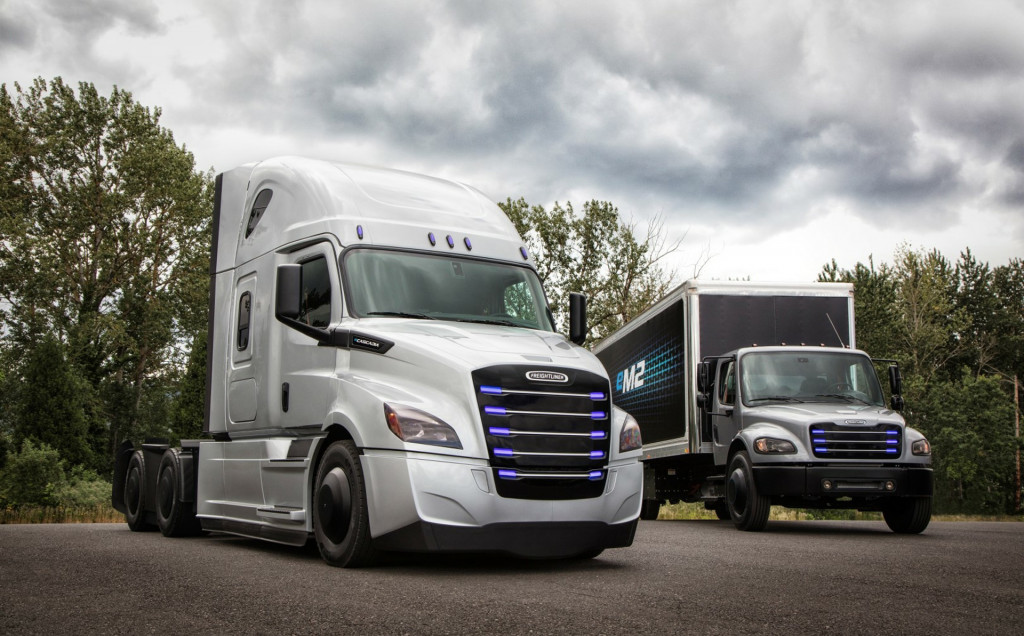California has made significant progress in reducing emissions with a zero-emission vehicle mandate for passenger cars, which requires the largest-volume automakers to sell battery-electric or hydrogen fuel-cell vehicles. Now the Golden State aims to tackle commercial trucks.
Adopted Thursday, the Advanced Clean Truck regulation requires manufacturers of commercial vehicles to start selling electric trucks in 2024, and to sell only electric trucks in California by 2045. The California Air Resources Board (CARB) claims this is the first rule of its kind in the world, and that it will lower related premature deaths by 1,000.
Trucks are the largest single source of vehicular air pollution, CARB said in a press release Thursday. They account for 70% of pollution and 80% of diesel soot, despite numbering only 2 million of the roughly 30 million vehicles registered in California.
Diesel exhaust emissions also disproportionately affect minority and low-income neighborhoods, as these neighborhoods are more likely to be situated near ports, rail yards, distribution centers, and freight corridors that experience heavy truck traffic, the agency said.
The regulation will result in 100,000 zero-emission trucks in California by 2030, and 300,000 by 2035. Related efforts aim to close diesel emissions loopholes related to commercial vehicles.
The Advanced Clean Truck regulation was applauded by environmental groups, with Katherine Garcia, Sierra Club California policy advocate, calling it a "win for the environment, air quality, and the economy."
The National Resources Defense Council (NRDC) said the new rule would lead to $8.9 million in health savings between 2020 and 2040.

Electric trucks from Daimler's Freightliner brand
"The sales standard is the biggest step to date for electric trucks," Jimmy O'Dea, senior vehicles for the Union of Concerned Scientists (UCS) said in a statement. "It will move the industry from press releases and pilot projects to large-scale production of electric trucks. Fortunately, multiple manufacturers already offer electric truck models so the industry will be able to meet these targets."
Since the mandate involves targets phased in over time, diesel trucks will still be sold for many years though. "Meeting the climate and clean air challenges in the future will require many solutions, and we are confident the newest generation of diesel technology is one of them," Allen Schaeffer, executive director of the advocacy group Diesel Technology Forum, said in a statement.
Schaeffer noted that California lags behind other states in adoption of diesel trucks with the latest emissions-control features, such as particulate filters and selective catalytic reduction.
In a statement, CARB said it is considering follow-up regulations that require new trucks to include features like those, as well as a rule setting stringent new nitrogen-oxide (NOx) emissions standards for trucks. CARB has also proposed a requirement for larger fleets to transition to electric trucks on an accelerated timeline.

West Coast electric highway for trucks - 2020
Utilities just banded together to draft a plan for a West Coast electric highway for semis, with regulations like these in mind.
Although short- and medium-duty trucks are likely to make up the majority of adoption over the next few years, several truck makers like Freightliner are working on long-haul heavy-duty trucks.
The new California regulations could also be good news for Nikola and Tesla, which are planning their own zero-emission semi trucks.
[ad_2]
Source link
